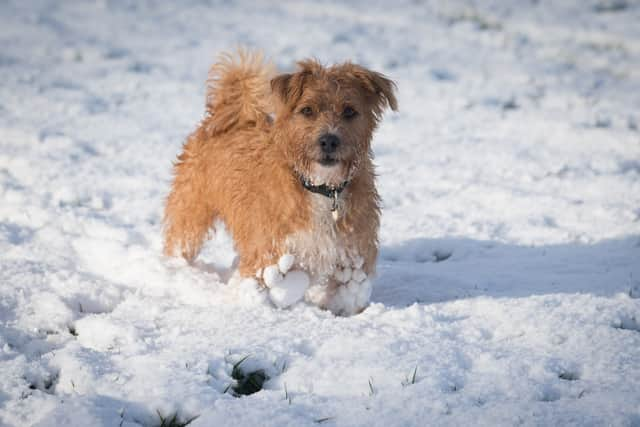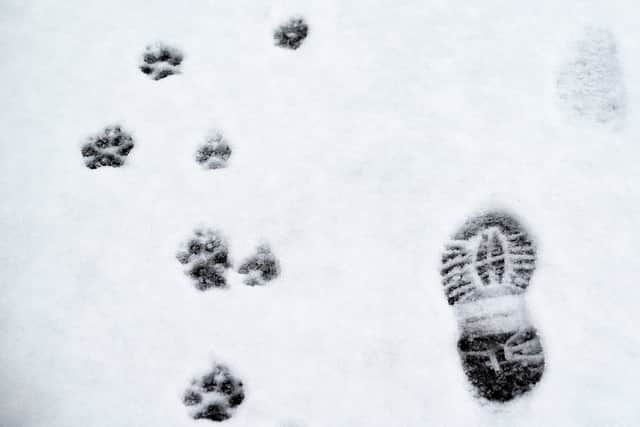Protect dogs & cats against cold this winter: Emergency vet issues alert to pet owners as temperatures plummet
and live on Freeview channel 276
The UK’s leading pet emergency vet, Vets Now, is bracing itself for an extra busy period, as temperatures all over the UK plummet. In some places of the UK, mostly in northern regions, temperatures are expected to drop as low as -6C.
Extreme winter weather can pose a threat to beloved pets. Common issues emergency vets treat include cats poisoned by antifreeze, cats and dogs suffering from frostbite on paws, breathing difficulties from dogs who have short-noses and pets injuring themselves due to icy and slippery surfaces, or on snow-covered hazards such as rocks.
Advertisement
Hide AdAdvertisement
Hide AdSo, ahead of the harsh weather set to arrive soon, Vets Now have provided some top tips to pet owners. This advice will help keep your pet safe and warm as temperatures continue to fall.
Vets Now head of telehealth, Dave Leicester, said: “When the weather turns, pets and their owners need us more than ever, and we’re keen to prepare pet owners about the potential dangers of cold weather. Our veterinary teams up and down the country are working hard, making extra preparations for the continued forecasted cold snap across large parts of the UK.
“Snowfall and freezing temperatures can pose a serious threat to your pet. Whilst we are always here to give your pets the best possible care in the event of an emergency, we would like to help in any way we can to prevent these emergencies from ever happening in the first place.
“We’ve produced some advice to help you protect your pet and prevent unwanted illness or injury. It’s essential you’re aware of what to do when faced with a pet emergency, especially when it’s out of hours and your vet is closed.”
Advertisement
Hide AdAdvertisement
Hide AdTips to keep your pet safe this winter
If it’s too cold for you, it’s too cold for your pet
Overnight is when temperatures begin to plummet. If your pet is outside overnight, they run the risk of hypothermia. Try and keep your pet in during the day as well if possible, and keep the house at a temperature of around 18C or more.
Go on shorter, more frequent walks
Aimed mainly for dogs, try and go on shorter, more frequent walks to lessen the chances of weather-associated health risks.


Wash and dry your pet’s feet following walks
Chemicals found in things like grit can be irritable to your pet’s pads. Especially if they have any small cracks or redness between the toes, so always wipe their paws with a cloth and warm water when you get home.
Clean up antifreeze
Antifreeze is poisonous to many animals and can pose a big risk. If you do spill any, clean it up as soon as you can as even small amounts can prove fatal.
Advertisement
Hide AdAdvertisement
Hide AdKeep an eye out for cats
Cats outdoors are often looking for adventure, but over the colder months they will seek out warmth too. A warm vehicle engine seems like the ideal spot for freezing felines so make sure to check underneath a car before setting off.


Consider a little sweater
It’s a myth that pets are more resistant to colder weather because of their fur. Even long-haired pets are at risk in cold weather. Consider putting a dry sweater on your pet before going outside and always take spares in case they get wet.
Steer clear of water that has frozen over. There is no guarantee it will support the weight of your pet. If your dog or cat falls through ice it may be deadly.
Comment Guidelines
National World encourages reader discussion on our stories. User feedback, insights and back-and-forth exchanges add a rich layer of context to reporting. Please review our Community Guidelines before commenting.
